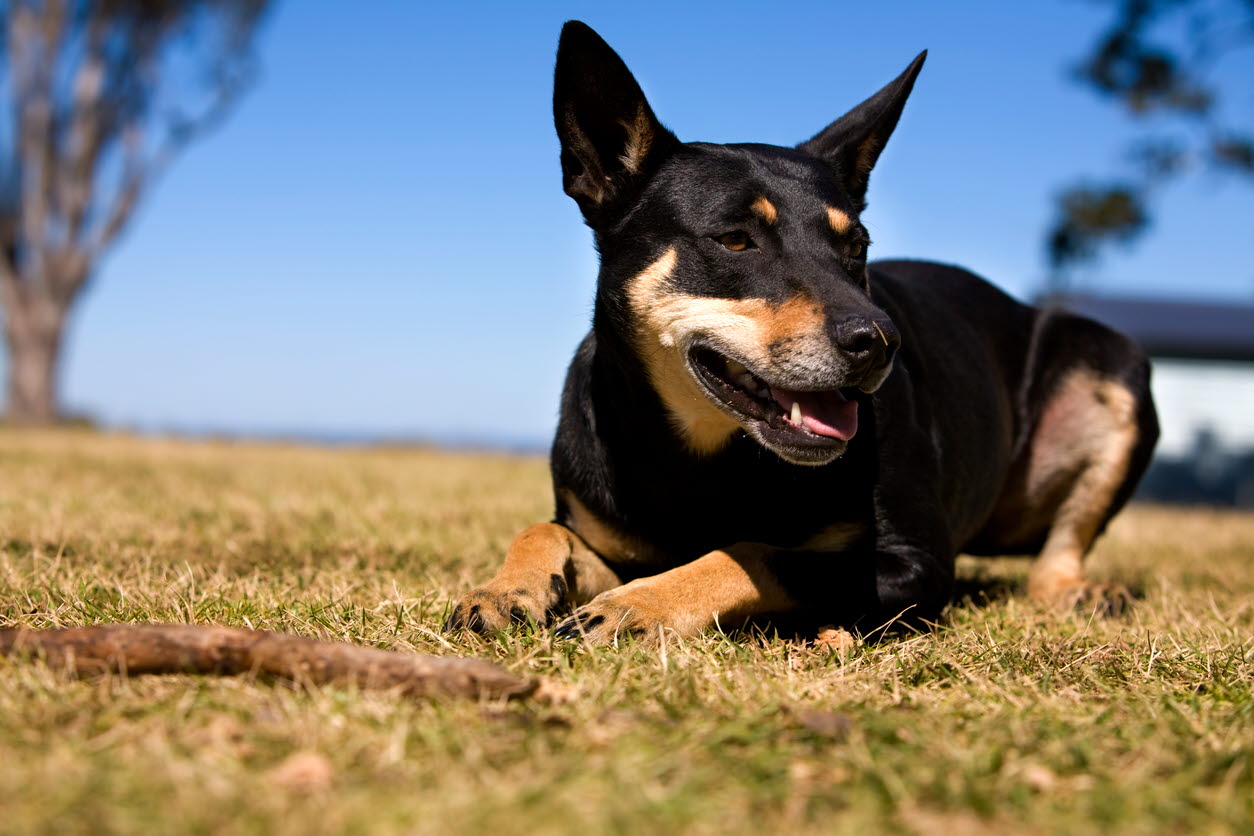
Working dogs are one of the most valuable animals in Australia, with some dogs selling for over $20,000. Working dogs need the same routine care that any other dog would, and this includes adequate shelter and nutrition, vaccinations, parasite prevention (including heartworm prevention) and desexing (if you plan not to breed from your dog).
Responsible ownership of farm working dogs is critical, and as an owner, you need to be aware of the legal requirements and health care required to ensure a dog can work to the best of its ability.
We suggest you refer to the ‘responsible ownership of farm working dogs’ handbook for more detailed information of the summary in this article.
Legal requirements
Owners of farm working dogs need to be aware of the following list of legal requirements to avoid prosecution. If the owner of a dog is under 18 years of age, their parent or guardian will be deemed the legitimate owner of the dog in the event of any penalties or prosecutions.
- Dogs on moving vehicles: It is a legal requirement to secure dogs on moving vehicles safely (e.g. utes, trays, and trailers) so they cannot fall or jump from or become injured from the movement of the vehicle or other vehicles. Care of dogs in hot weather is essential, particularly for dogs secured in metal crates.
- Registration: Under the Domestic Animals Act 1994, all dogs over three months of age must be registered with the local council. Check with your council to find out how many dogs you can keep and if you need a permit for excess animals. It is an offence to knowingly register a non-farm working dog as a farm working dog.
- Housing: Dogs must always have access to a kennel, shed or other protection from the elements and for sleeping. The use of electronic collar containment systems does not constitute adequate fencing (there is strict regulation of these collars and their use under the Prevention of Cruelty to Animals Act 1986). You can be fined under the Domestic Animals Act 1994 if your dog is not securely confined to your property.
- Tethering of farm working dogs: You should only consider tethering as a last resort, but if unavoidable you should refer to “Code of practice for the tethering of animals”. It contains a number of critical safety requirements.
- Attacks on stock: Under the Domestic Animals Act 1994, you can face substantial fines and claims for damages if your dog attacks a person or animal. Dogs found guilty of an attack can also be humanely destroyed or declared dangerous (resulting in stringent controls on the dog’s housing, exercise and ownership).
- Health - The health of farm working dogs has, in the past, been overlooked. As these animals play an integral part in the farm workplace, you are responsible for providing an adequate level of health care for dogs in your possession to avoid prosecution under the Prevention of Cruelty to Animals Act 1986. There are requirements for proper nutrition and health care standards, and these are all listed below.
Health requirements
You must consider the following health issues, and you should refer to the handbook for more detailed information on each topic.
- Desexing
- Vaccinations
- Parasite prevention
- Grass seeds
- Heatstroke
- Arthritis
- Snake bites
- Poisoning
- Raising and training younger dogs
- Bushfires and emergency evacuations
